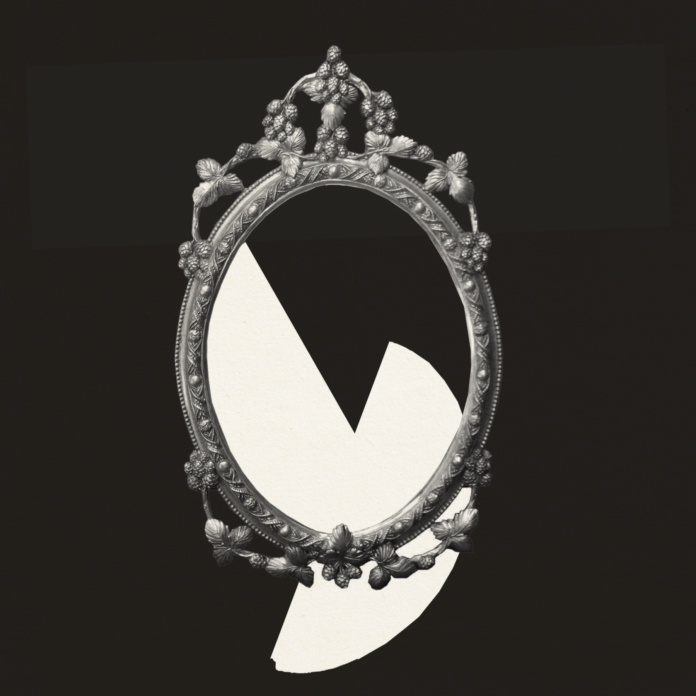“Mother always looked so womanly. I felt so thin in comparison. I didn’t realize it was because she was always pregnant,” my mother used to say.
My maternal grandmother liked to tell me stories about her life, even the two miscarriages. The first one occurred shortly after Grandma married, before my mother was born. She was 18, working as a shop girl in Chicago, ten hour shifts on her feet. “All for a lousy buck,” Grandma said. One day she started cramping at work. She went home early and that evening she started bleeding and couldn’t stop. That’s how she’d discovered she’d been pregnant, after she’d miscarried in the toilet of their small apartment.
Grandma told me about the second miscarriage as well. It was after child number three. There were two girls and one boy, and this baby was going to be a boy, too. He was going to be the last baby. “A perfect set,” she said later. “Two girls and two boys.”
But the baby died. It was late in the pregnancy and he’d been fully formed: “I felt like I lost a real baby.” She turned from me, and looked at her hands folded neatly in her lap. She said she wanted to mourn him.
But Gramps was drinking, and he blamed Grandma for many things, including the loss of the baby. He made her pregnant again soon after. (“He raped me,” Grandma whispered to me in the quiet of her living room long after he had died.) She said she wasn’t ready, but that baby became living baby number four. Another girl.
Then another girl, another girl, another girl, another girl.
Grandma said when Gramps was drinking, he claimed she descended from a family of “Irish cowards” because the men had never served in the military, while he liked to brag about his English heritage, his time in the Navy, the family crest. But Grandma was proud of her people. She hadn’t known her father well, but “Mom was always a hard worker,” she said, and her grandmother before that and her great-grandmother, too.
I did not know about the third miscarriage, meaning eleven pregnancies total, until years after Grandma had died, years after my mother had died. My brother found the list of birthdays of all the babies written in the front of Grandma’s Bible. There was an unfamiliar name and an unfamiliar date, a birth day and a death day, the same day.
“Look,” my brother said, “there was another baby.”
In Grandma’s diary, I found a folded sheet of paper with the baby’s name written over and over in her beautiful Palmer script. Eileen, Eileen, Eileen, Eileen. A good Irish name.
Why had she never mentioned the third miscarriage? I wondered. Was the disappointment so great? Or the circumstances of the birth too awful? Perhaps Grandma was too tired beyond this simple commemoration, saved on a scrap of paper. There were three more babies, live ones, after Eileen died. Maybe a moment was all the time she had to mourn.
I remember after Gramps died, Grandma fell into a depression, but then after three years, she began to dress in new clothes, she started a business, she made some new friends, widows she met via her CB radio. She had her picture taken at the Sears Portrait Studio and sent a color eight-by-ten to each of her eight children for Christmas. She had a blue perm, granny glasses, a big smile.
My mother put the photograph in a silver frame on her dresser. Sometimes my mother clicked her tongue against the roof of her mouth, looking at herself in the mirror beside the photo, afraid she was turning into her mother, the widow with the dowager’s hump and jowls, no longer the mother of memory with the womanly curves, the milk-filled breasts, the swell to her belly. “She really let herself go,” my mother said.
Me, I thought Grandma looked happy, the tension in her face at last released. She was free to eat and dress as she chose, to let her body hang out, her body finally her own and hers alone.
I’m a different race from my grandmother, and few people I know would spot a resemblance between us. When I was growing up, White women used to guess I was adopted, easier to assume I came from a faraway country than to imagine my mother had married a Chinese man, had sex with him, and conceived a child, me.
My mother used to insist I smile for her in all our family photos and I used to resent my mother’s rules about photographs. (“Don’t you want to look pretty?” she cajoled.) Being told to smile when I didn’t feel like it has turned me into something of a scowler.
Now I think of all the times my mother had been told by men, her father, to “Smile!” when she didn’t feel like it and complied out of some automatic fear response. I can look at my mother’s girlhood photographs, carefully posed by Grandma, Grandma’s eight children arranged by height, decorated in their Sunday clothes, and see no hint of the terror in their home showing on their smiling faces.
My grandfather’s violence against my grandmother, against my mother, filled them with shame, something to hide. Bruises like a stain on a dress were the fault of the women and girls in his life. Grandma said when a sheriff’s deputy brought Gramps home from a bar fight, drunk and still belligerent, the man criticized her, not him: “Next time, Ma’am, keep a better eye on your husband.”
Today I wear my frown lines with pride. It’s the look that says plainly I was born into a different era from my mother’s and grandmother’s, one where no man can legally beat me for scowling.

